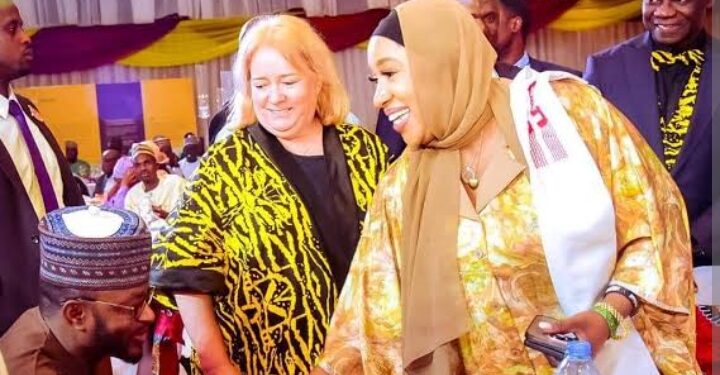The Federal Government, United Kingdom (UK) and other stakeholders have commended the Sightsavers for implementing programmes to support Persons with Disabilities (PWDs) and elimination of Neglected Tropical Diseases (NTDs) in Nigeria.
They made the commendation in Abuja at a gala night and award ceremony to mark the 70th anniversary of Sightsavers, an international charity organisation.
Speaking at the event, the Minister of Humanitarian Affairs and Poverty Alleviation, Dr Betta Edu, said, “You can only imagine the joy and gratitude in the hearts of people who you have saved their sights. Nigeria is proud to say that we are great beneficiary of Sightsavers, you have reduced the morbidity associated with blindness in Nigeria. We are proud to say as a country we have had immense benefits from our partnership with Sightsavers.”
Also, Senior Education Adviser, Foreign Commonwealth and Development Office (FCDO), Ian Attfield, said the office would continue to partner with the Nigerian government, Sightsavers and others in implementing programmes.
“We really value the partnership with Sightsavers in the disability inclusive programmes and we will continue to strengthen our work including and importantly with government. Because I know that Nigerian government have stood by the partners to promote through legislation, policies to work against stigma to improve the lives of PWDs,” Attfield said.
On his part, Executive Secretary, National Commission for Persons with Disabilities (NCPWD), Mr James Lalu, acknowledged the support of Sightsavers in the establishment of the commission and the Discrimination Against Persons with Disabilities Prohibition Act.
“I appreciate Sightsavers for what you have been doing in improving the quality of life for PWDs since I assumed the position of executive secretary, NCPWDs. You have been one of our partners and fighting for disability rights in Nigeria.
“They have committed a lot of resources and energy to make sure PWDs have law that protects their lives and dignity. We now have a Discrimination Against Persons with Disabilities Prohibition Act and that did not stop there, as Sightsavers mobilised stakeholders to mobilise NCPWDs.
“We commend the work of Sightsavers and what they have been doing in Nigeria; we thank you on behalf of the over 30 million Nigerians with disabilities,” Lalu said.
On her part, Chief Executive Officer, Sightsavers, Ms Carolyn Harper, stressed the need to improve access to healthcare services especially at the community level.
She said, “There is still a lot to do to bring healthcare into communities, particularly in the north and we need to continue to fight to do that. Some of my colleagues will be traveling to communities to see progress made and I hope to continue to make progress over the next few years in the elimination of NTDs, health work and PWDs.”
The Sightsavers Country Director, Dr Sunday Isiyaku, called for more support from prominent Nigerians within and in the Diaspora to contribute towards improving eye health and protecting rights of PWDs.
According to him, “You have paved a way for Nigeria; where NTDs will be confined to the history books; where people hopefully will not go blind for variable causes; where PWDs will contribute meaningfully and equally to our society.”
The Communication Associate of the organisation, Ms Joy Tarbo, specifically cited trachoma, saying that as they began operations in Nigeria 70 years ago, the number of people who were at the risk of going blind have reduced drastically from 38m at programme inception to just over 3.7m.
“We are committed to a future where people are no longer at risk from neglected tropical diseases, everyone has access to quality eye care, and people with disabilities can thrive in an inclusive society,” Tarbo said.











